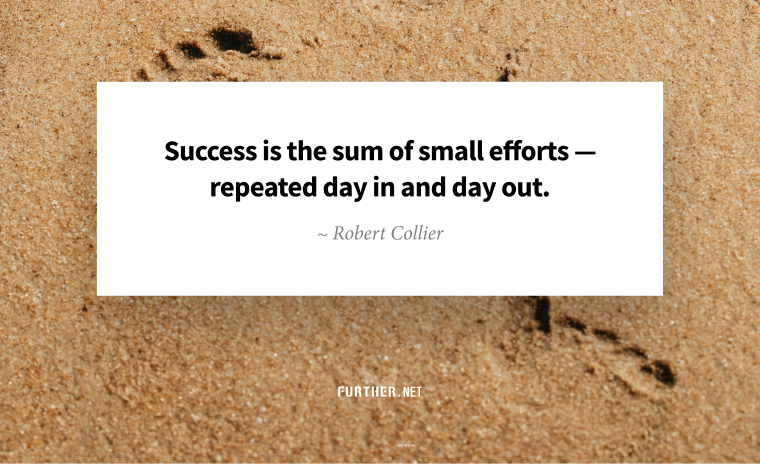
Nowadays, the divides we as a society and individually face seem insurmountable. Sometimes it feels like the end of the world as we know it.
But then, you know the refrain — and I feel fine. How can that be possible in these troubled times?
You don’t have to be Archbishop Desmond Tutu or the Dalai Lama to find happiness in the face of adversity. Nor do you have to be a conflict resolution master to usher in peace like Nelson Mandela or Shirley Chisholm.
All it takes is micro shifts in your behavior and mindset to massively improve your well-being.
Spread a Little Happiness
You probably know there are profound health benefits to being kind, helpful, and grateful. But new research from the BIG JOY Project shows engaging in daily “micro-acts” of joy — like writing a gratitude list, doing a favor for a friend, or complimenting a stranger — can increase your emotional well-being by 25%.
According to BIG JOY project leader Emiliana Simon-Thomas:
There are statistically significant, measurable changes [including] greater well-being, better coping, less stress, more satisfaction with relationships.
Another BIG JOY researcher, Elissa Epel, notes that micro-acts give you a sense of agency in the face of suffering, helping alleviate anxiety.
After all, positivity doesn’t mean everything’s all good. It just means finding the good in everything.
Which brings us to…
What to Do When There’s a Little Fight Left in You
The secret sauce in micro-acts of joy is the intention — you methodically focus on connection, empathy, and compassion. Conflict resolution expert Tim Phillips advises being similarly intentional about bypassing your brain’s natural protective impulse to forge a conciliatory path.
Phillips says he’s seen people emotionally disarm the opposition in a disagreement simply by recognizing their humanity.
While Phillips gives sweeping examples like Congresswoman Shirley Chisolm praying at the bedside of her opponent for the Democratic presidential nomination, segregationist and Alabama Governor George Wallace, after he’d been shot (reportedly changing his stance on racial segregation), your pivot can be much simpler.
For example, in Embracing Bliss, meditation teacher Jeff Kober tells this relatable story:
Timothy F. was a man I knew who consistently made trouble for me, but we were in the same social circle and so had to deal with each other. The one unique thing I noticed about him was that he always matched his socks with his shirts. These many years later, that is what I remember about him. Not our troubles.
And if the conflict is too intense, you can always take a microbreak to decrease stress and regain mental clarity — even a few deep breaths can do the trick.
So, go ahead and sweat the small stuff. It’s a research-backed way to exponentially expand your sense of peace and joy.
Can little actions bring big joy? Researchers find ‘micro-acts’ can boost well-being (NPR)
Lessons from brain science — and history’s peacemakers — for resolving conflicts (NPR)
